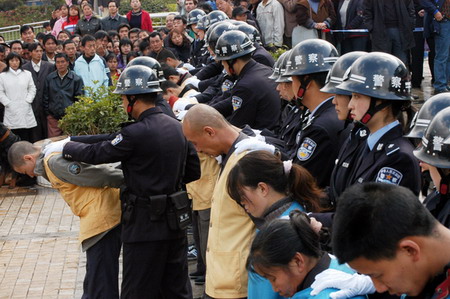֣���۲�����-��֣�������ۿ�ҽԺ����֣�������ۿ�ҽԺ,֣��֣ئ�ۿ�ר��ҽԺ,֣�ݸ߶Ƚ��ӻ�ʧ����,֣�������ۿ�ҽԺ�ļҺ�,֣�ݽ�����������Ҫ��������,֣�ݽ��������۸��,֣���ۿ�ҽ������
����֣���۲�����֣�ݺ��Ͽ��۲��ĸ�ҽԺ��,֣�ݼ�����Ҫ����Ǯ,֣�������۾�����,����������������,�ᷴ����,֣�ݽ�������ô�κ�,֣��500�Ƚ�������������,֣�ݽ��ӽ�����������ʡ,֣�ݽ����ܷ��Ͼ�У
���� ����
����Europe is proposing a ban on single-use plastic items such as cutlery, straws?and cotton buds in a bid to clean up the oceans.The European Commission wants to ban 10 items that make up 70% of all litter in EU waters and on beaches. The list also includes plastic plates and drink stirrers.The draft rules were unveiled Monday but need the approval of all EU member states and the European Parliament. It could take three or four years for the rules to come into force.The legislation is not just about banning plastic products. It also wants to make plastic producers bear the cost of waste management and cleanup efforts, and it proposes that EU states must collect 90% of single-use plastic bottles by 2025 through new recycling programs.The European Commission estimates that these rules, once fully implemented in 2030, could cost businesses over �3 billion (.5 billion) per year. But they could also save consumers about �6.5 billion (.6 billion) per year, create 30,000 jobs, and avoid �22 billion (.6 billion) in environmental damage and cleanup costs.The Rethink Plastic Alliance -- an association of environmental organizations -- called the proposals "a leap forward in tackling plastic pollution" but criticized some perceived shortcomings.The proposals do not set targets for EU countries to reduce the use of plastic cups and food containers, it said."This could result in countries claiming they are taking the necessary steps as long as any reduction is achieved, regardless of how small," the alliance said in a statement.The proposal also faced criticism from the plastics industry.Plastics Europe, which represents manufacturers, said it supported the "overarching objective" of the proposal but said there must be more resources dedicated to "waste management" to ensure better collection of used plastic."Plastic product bans are not the solution," it said in a statement, and noted that "alternative products may not be more sustainable."On a global basis, only 14% of plastic is collected for recycling. The reuse rate is terrible compared to other materials -- 58% of paper and up to 90% of iron and steel gets recycled.Research shows there will be more plastic than fish by weight in the world's oceans by 2050, which has spurred policy makers, individuals and companies into action.Last month a group of more than 40 companies including Coca-Cola, Nestle, Unilever and Procter & Gamble pledged to slash the?amount of plasticthey use and throw away in the United Kingdom.Starbucks also announced in March it was launching a million grant challenge to solicit designs for a cup that's easier to recycle. 2689
����ENCINITAS (CNS) - A woman is dead today after being struck and killed by a vehicle in Encinitas, authorities said.At 8 p.m. Saturday, the victim, in her 50s, was hit by a vehicle traveling northbound on the 2600 block of South Coast (101) Highway, according to the San Diego Sheriff's Department.``The driver of the involved vehicle stopped immediately and remained at the scene of the collision,'' said Sgt. Jeffrey Houser, with the NorthCoastal Station. ``The driver and nearby bystanders rendered medical aid to the injured pedestrian.''The pedestrian was transported by ambulance to a nearby hospital where she was pronounced dead.Drugs or alcohol are not suspected to be factors in the collision. The driver is cooperating with investigators, according to the sheriff's department.Anyone who may have witnessed the crash is asked to call the department at 858-565-5200. 882
���� ����
����Facebook has removed a campaign ad by President Donald Trump and Vice President Mike Pence that featured an upside-down red triangle. That symbol was once used by Nazis to designate political prisoners, communists and others in concentration camps. Nathaniel Gleicher, the company��s head of security policy, confirmed at a House Intelligence Committee hearing Thursday that the ad had been removed. He says Facebook does not permit symbols of hateful ideology ��unless they��re put up with context or condemnation.��Facebook has the following policy involving hate speech:"We define hate speech as a direct attack on people based on what we call protected characteristics �� race, ethnicity, national origin, religious affiliation, sexual orientation, caste, sex, gender, gender identity, and serious disease or disability. We protect against attacks on the basis of age when age is paired with another protected characteristic, and also provide certain protections for immigration status. We define attack as violent or dehumanizing speech, statements of inferiority, or calls for exclusion or segregation." 1112
����ESCONDIDO, Calif (KGTV) - An albino red-tailed boa constrictor named "Lemony Snicket" is back home.A man wearing a hood and backpack returned the snake on May 16 to the EcoVivarium children's museum in Escondido. Museum officials believe Lemony disappeared on April 29. The snake was dehydrated and had not been fed. It was also full of mites. Lemony will undergo a 30-day quarantine.RELATED: Snake named 'Lemony Snicket' missing after unfortunate events at Escondido museumThe boa disappeared after a series of �� ahem, "unfortunate" �� events during a tour at the children's museum. Lemony was taken out of its cage for guests, before being locked back up.During the tour, however, museum officials said a man in his 20s excused himself from the group never to return. Later in the day, they said the boa was missing.A security camera facing Lemony's enclosure was also inoperable. Earlier the same day, the camera broke. A security expert said it appeared the camera was knocked out by some type of electrical charge.The museum said it would not press any charges against the person they believe to have taken the snake. 1144
����Facebook said Wednesday that Cambridge Analytica, a data firm with ties to President Donald Trump's campaign, may have had information on about 87 million Facebook users without the users' knowledge.Facebook had previously said the number of people whose information may have been shared with Cambridge Analytica was only around 50 million. It announced the revised number in a blog post on Wednesday.Facebook has said the data was initially collected by a professor for academic purposes in line with its rules. The information was later transferred to third parties, including Cambridge Analytica, in violation of Facebook's policies. 644


